The death of Philip Seymour Hoffman aged 46 has deprived modern cinema of one of its true greats. An Oscar winner with three other Academy Award nominations to his name, he was loved and admired by his peers. He was also loved and admired by audiences the world over, lighting up films both big (Mission: Impossible III) and small (Capote) with his chameleon presence, and even launching an embryonic career on the other side of the camera with Jack Goes Boating. As our tribute, Team Empire has picked the moments when we loved PSH the most.
ALMOST FAMOUS (2000)
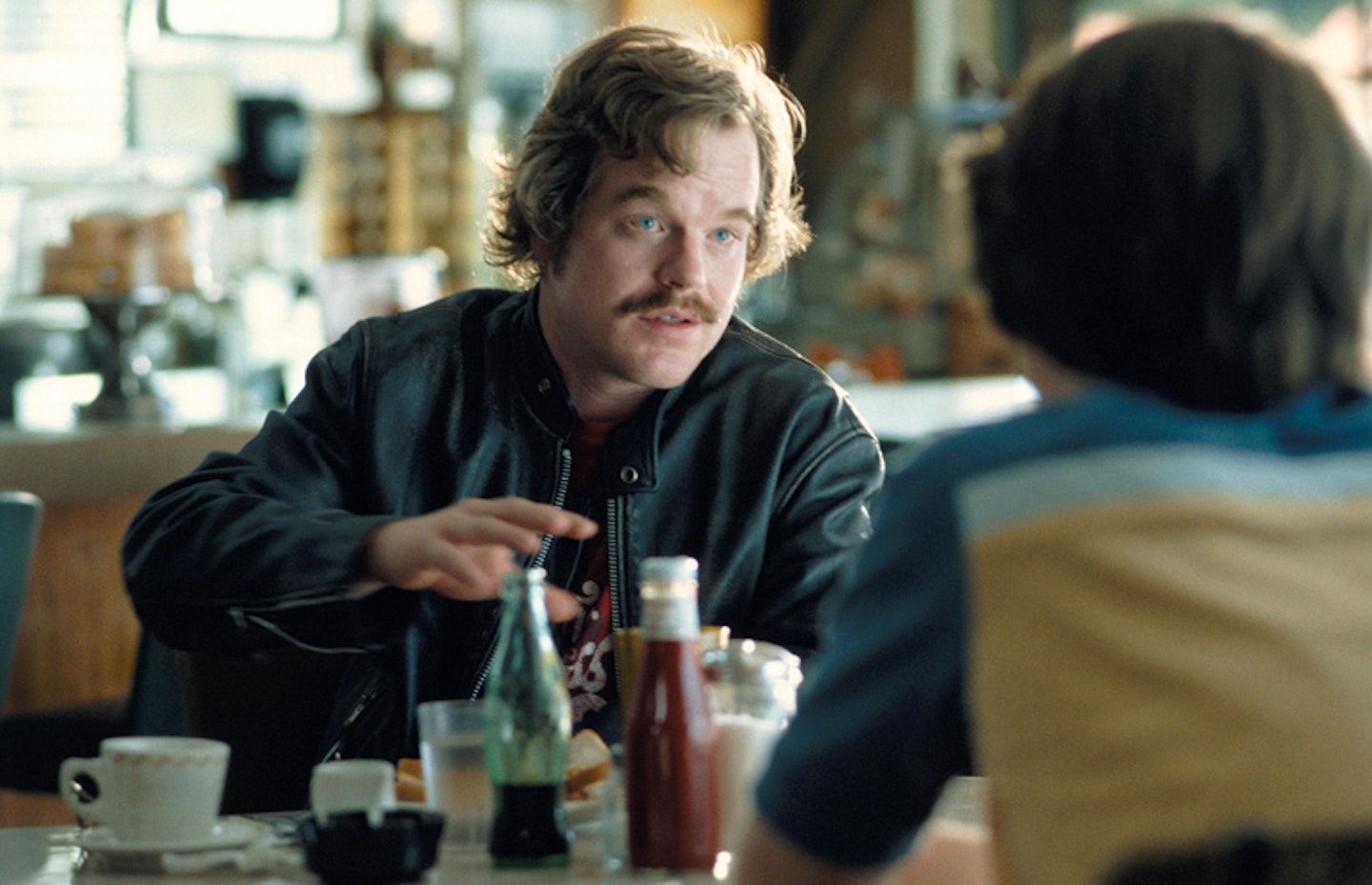
Chosen by:* Mark Dinning, Editor*
“The only true currency in this bankrupt world is what you share with someone else when you’re uncool…” So says Philip Seymour Hoffman’s Lester Bangs in Cameron Crowe’s semi-autobiographical Almost Famous.
Crowe’s movie remains a woozy and wonderful love letter to his early days documenting his rock ‘n’ roll heroes, and Hoffman’s glorious, acerbically warm performance as his rock-journalist/Beat poet mentor Bangs remains an indelible piece of casting – both his and Bangs’ surface scruffiness belying the razor sharp lines of wit and wisdom that always lay beneath.
The bankrupt world benefitted greatly from Hoffman’s sharing of his unquestionable talent, fuelled largely by his own insecurity. “If I don’t get an absolute feel for the material then it’s just not worth doing,” he once said of choosing scripts. “If I commit to something I am committing to putting a piece of me out there. If that piece isn’t going to be all it can be then it isn’t worth the risk.”
He was right, of course. There’s a permanence to film performances that has always made them as terrifying as they are tempting. And Hoffman’s record is proud testament to both his taste and his talent. Or, as his Bangs puts it: “Great art is about conflict and pain and guilt and longing and love…” And amen to that.
TWISTER (1996)
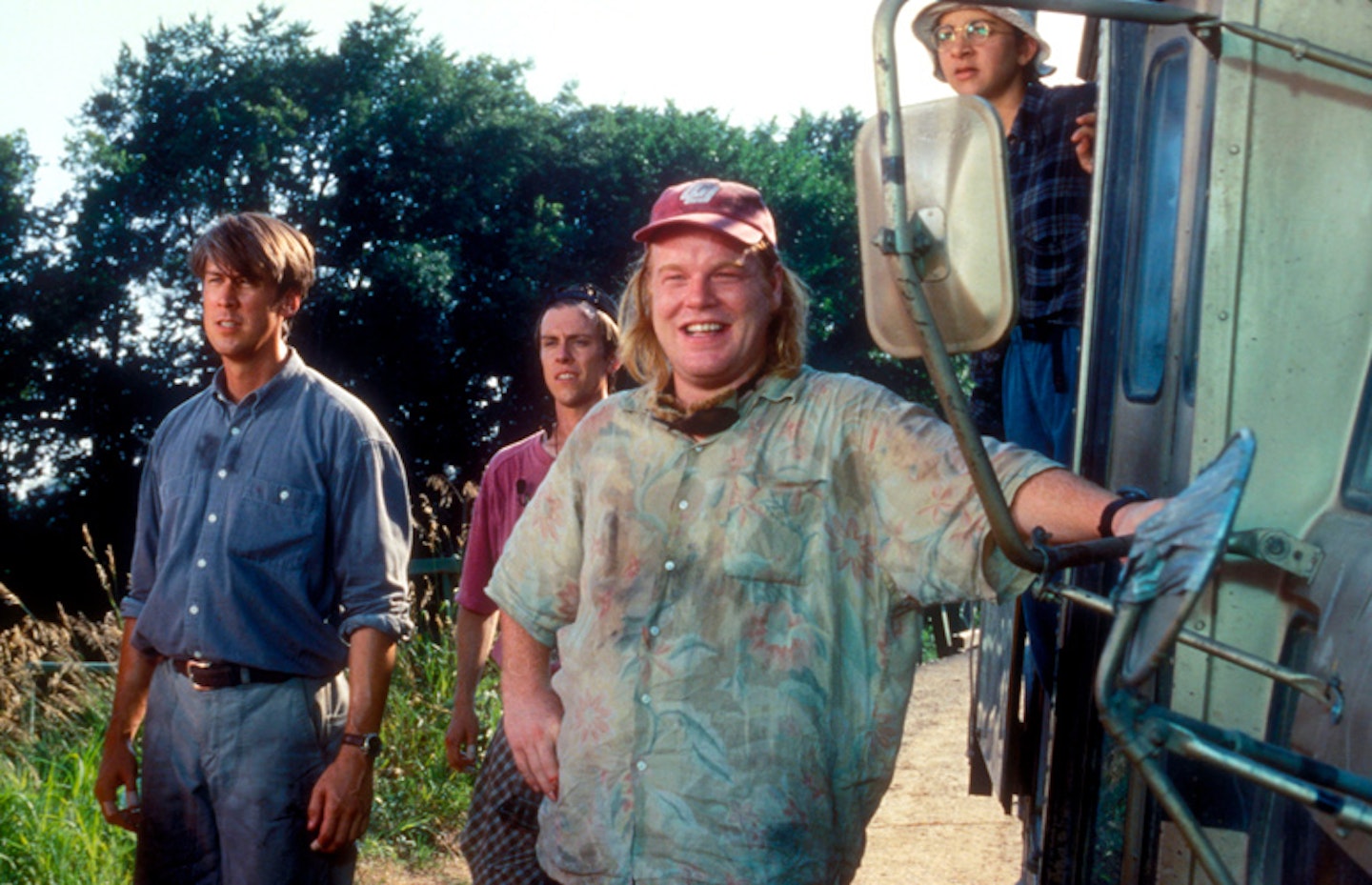
Chosen by:* Ian Freer, Assistant Editor*
Clearly Dustin ‘Dusty' Davis, the manic storm chaser in Twister, is the not the apotheosis of Hoffman’s talent, but it does shine a chink of light on one of his great gifts. It might be difficult to remember now, but for years Hoffman was That Guy From That Thing and the energy and commitment he brought to Dusty — watch him shout “It’s a wonder of nature, baby”, then wig out to Deep Purple — was typical of his ability to add an edge and vitality to potentially bland supporting roles or comic relief. Big studio movies never really figured out what to do with Hoffman’s singular talent in chunkier roles, but his ability to outshine big names and bigger visual effects is to be cherished. A wonder of nature indeed.
THE BIG LEBOWSKI (1998)
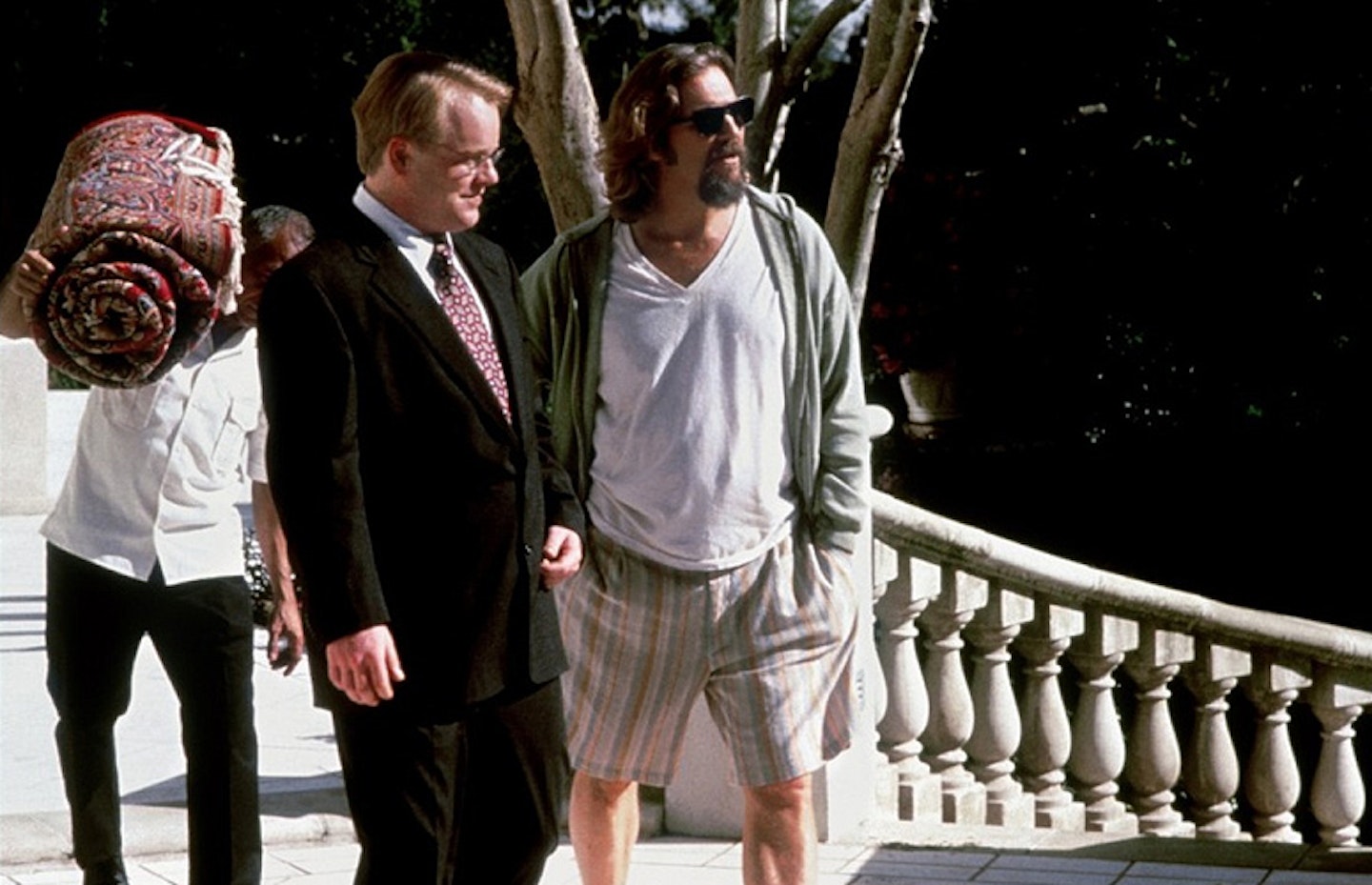
Chosen by:* Amar Vijay, Creative Director (Online)*
Obviously, The Big Lebowski is an amazing film with indelible characters. But outside the main trio of Bridges, Goodman and Buscemi, it’s Hoffman’s uptight Brandt, encapsulating the perfect yes-man employed by the “other” Lebowski, who stands out for me as one of the greatest in the pantheon of minor Coen characters.
In his few scenes, Hoffman delivers the perfect amount of smarm. He comes across as a most annoyingly loyal employee, displays freakishly OCD tendencies and finally shows a dash of childish embarrassment when dealing with unsavoury conversations. The moment when he first meets The Dude, before allowing the perma-bathrobed one a meeting with his boss, is note-perfect, showing off his immense talent and heightening those vast lifestyle differences between The Dude and Brandt in two perfect minutes.
STATE AND MAIN (2000)
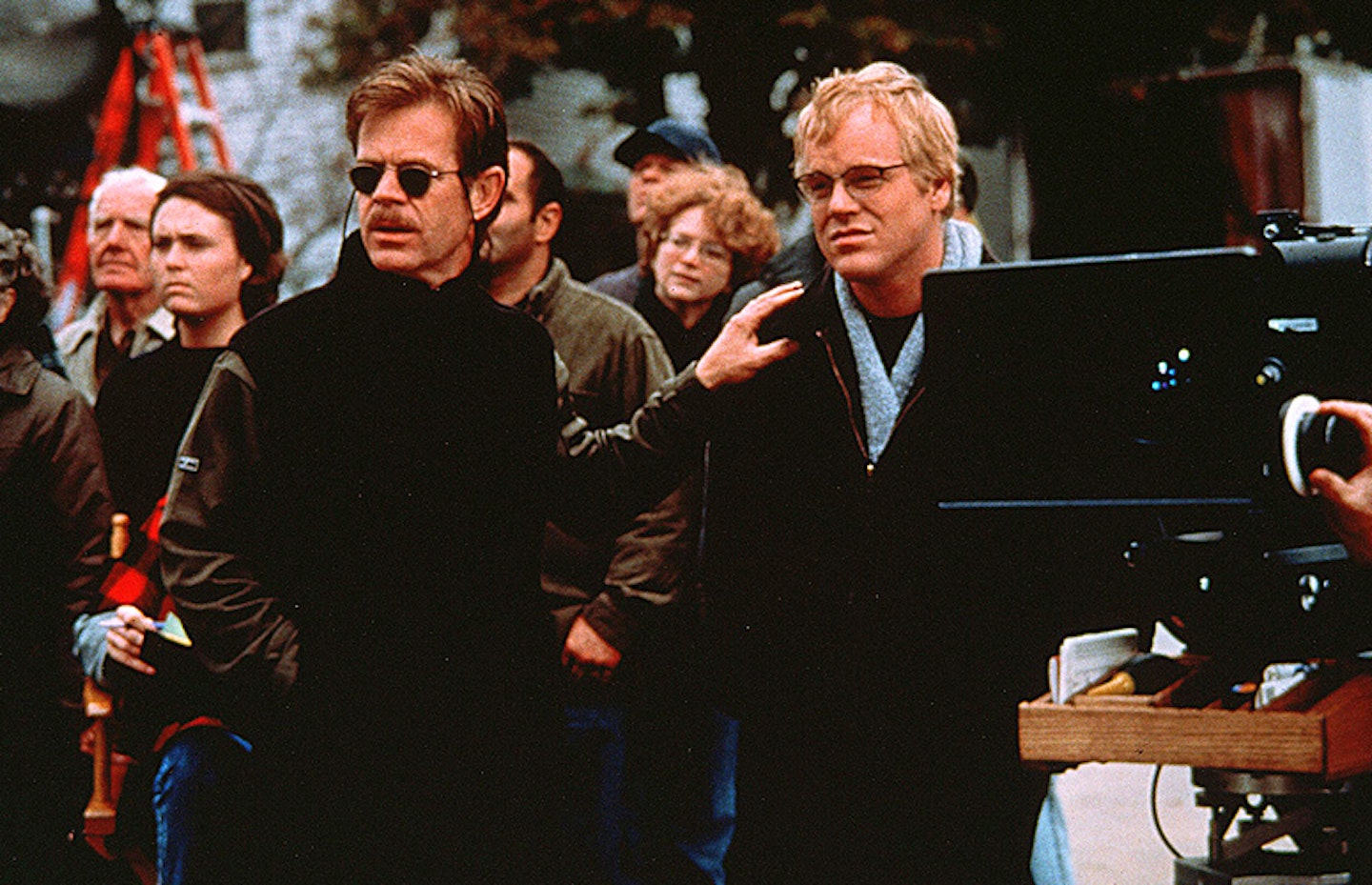
Chosen by:* Helen O’Hara, Deputy Online Editor*
It’s not the biggest role or the most challenging one he ever did, but the Philip Seymour Hoffman performance that I go back to most often is a rare romantic lead in David Mamet’s ensemble satire. A Hollywood crew lands in a small, quiet town and turns it upside down; Seymour Hoffman plays Joseph Turner White, the film’s idealistic and put-upon screenwriter, struggling to protect his vision while locations are vandalised, the town is scandalised and the director questions whether his story (“The Old Mill”) *really *requires an old mill.
Seymour Hoffman is intelligent, slightly bewildered, conscious of both his good fortune in having a movie produced but also his precarious position, low on the totem pole. Amid eccentric townspeople and corrupt filmmakers, he’s as close as we get to a moral compass – but he’s sorely tempted to turn with the wind. Happily for White, he has his cake and eats it: he does the wrong thing, sweats the consequences and then gets a second chance to do it right. Like The Old Mill, “it’s about purity”: White manages to hold on to his virtue (it’s a Hollywood fairy tale, after all) and from chaos art somehow happens.
Likeable, thoroughly human and shyly charming, this role doesn’t reach the dramatic heights of The Master or Doubt, but it shows that Hoffman could add layers and meaning where other actors might have coasted by on a chiselled jawline or cheeky grin.
JACK GOES BOATING (2010)
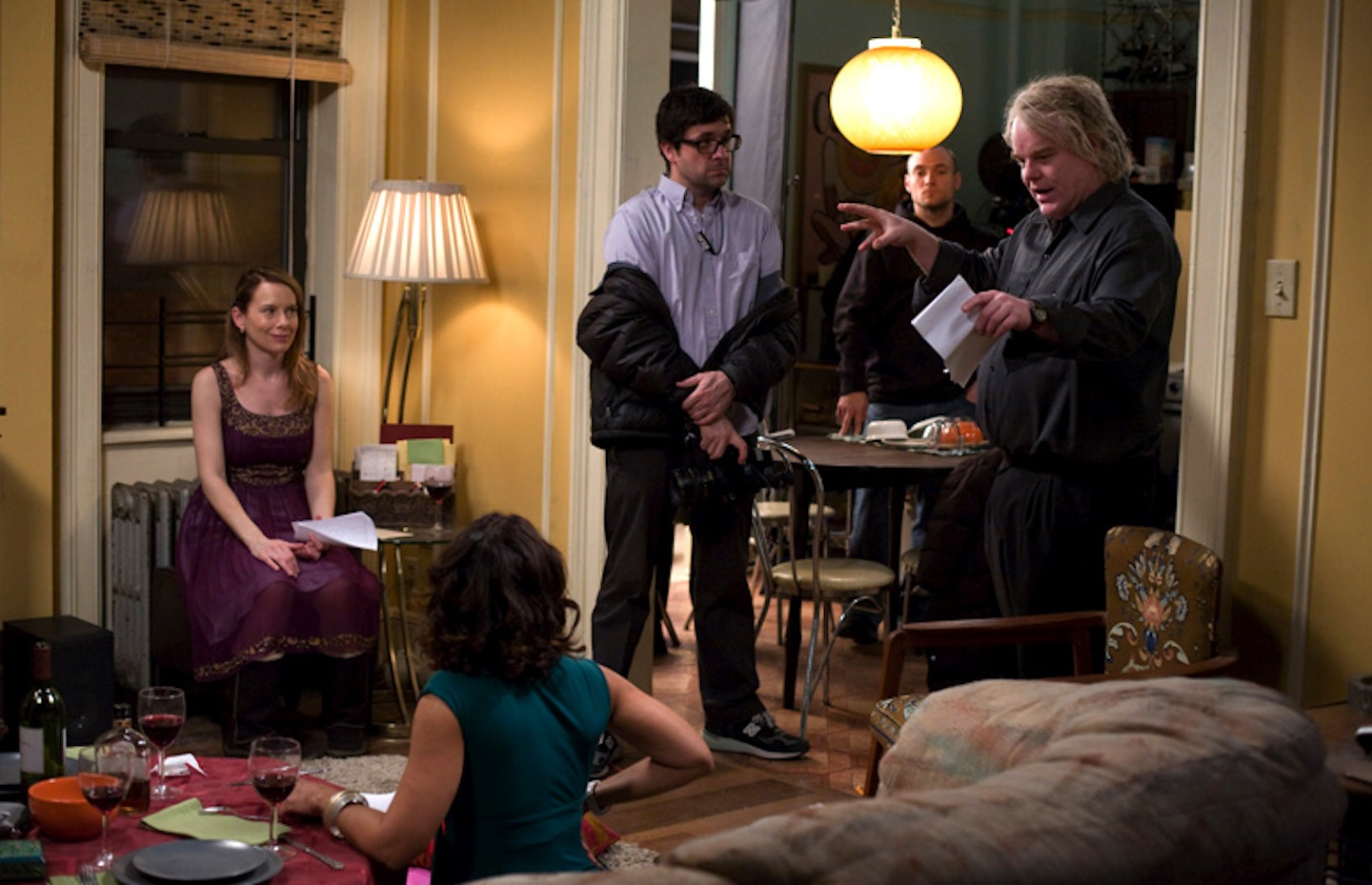
Chosen by:* Phil de Semlyen, Staff Writer*
I was lucky enough to interview Philip Seymour Hoffman a couple of years ago. It was at the Jack Goes Boating press junket, at the time his directorial debut but now destined to be his single foray into filmmaking. He was perched on a Soho Hotel chair, jetlagged to the nines and ready for a cigarette, but still offered a persuasive voice for the Gotham chamber piece he’d transplanted from stage to screen.
He demurred when I asked if the film was his love letter to New York, the city he studied in and where he waited tables as a jobbing actor, but the movie was still clearly personal to him. “It’s about working class people in New York”, he explained, “and trying to see through their eyes. I was thinking about what it was like for me when I was living there. The walking/subway life is the way you should experience New York, and the way I still try to.”
His performance as the film’s lovelorn, dreadlocked limo driver may not be remembered alongside Magnolia, Happiness or Capote, but search it out to watch his unshowy craft on both sides of the camera.
HAPPINESS (1998)
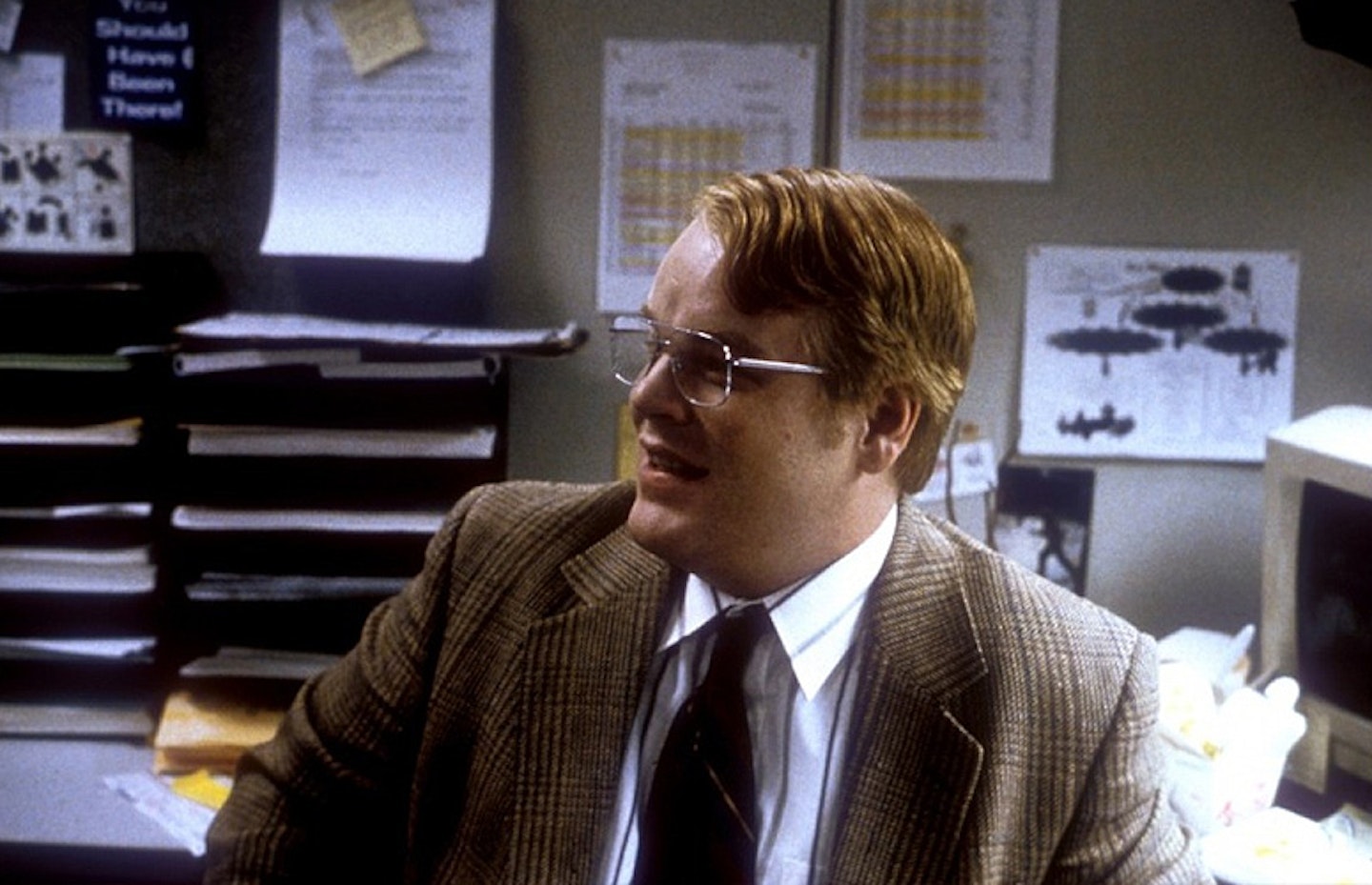
Chosen by:* Ali Plumb, Staff Writer*
At the risk of damning with inappropriate praise, Philip Seymour Hoffman’s portrayals of creepy, creepy perverts were second to none. His finest effort can be found in Todd Solondz’s controversy-baiting darker-than-Death’s-drawers black comedy Happiness, which features dog semen, paedophiles, anhedonia and... I’m too coy to tell you what else.
Seymour Hoffman’s Allen is an isolated deviant who mutters sexually aggressive sweet nothings under his breath when he’s standing next to attractive women. At one point he calls up another character and does the whole “What are you wearing?” shtick in the most disturbing manner possible. You haven’t seen Seymour Hoffman’s full range until you’ve seen him grunt, “I want to tie you up”; “You think you are something, but you are fucking nothing”; “I’m going to…” again, I’m too coy to go on. There is *so *much going on in Happiness, but it’s Seymour Hoffman’s performance that remains tattooed on the back of my retinas, 16 years after I first saw it.
SYNECDOCHE, NEW YORK (2008)
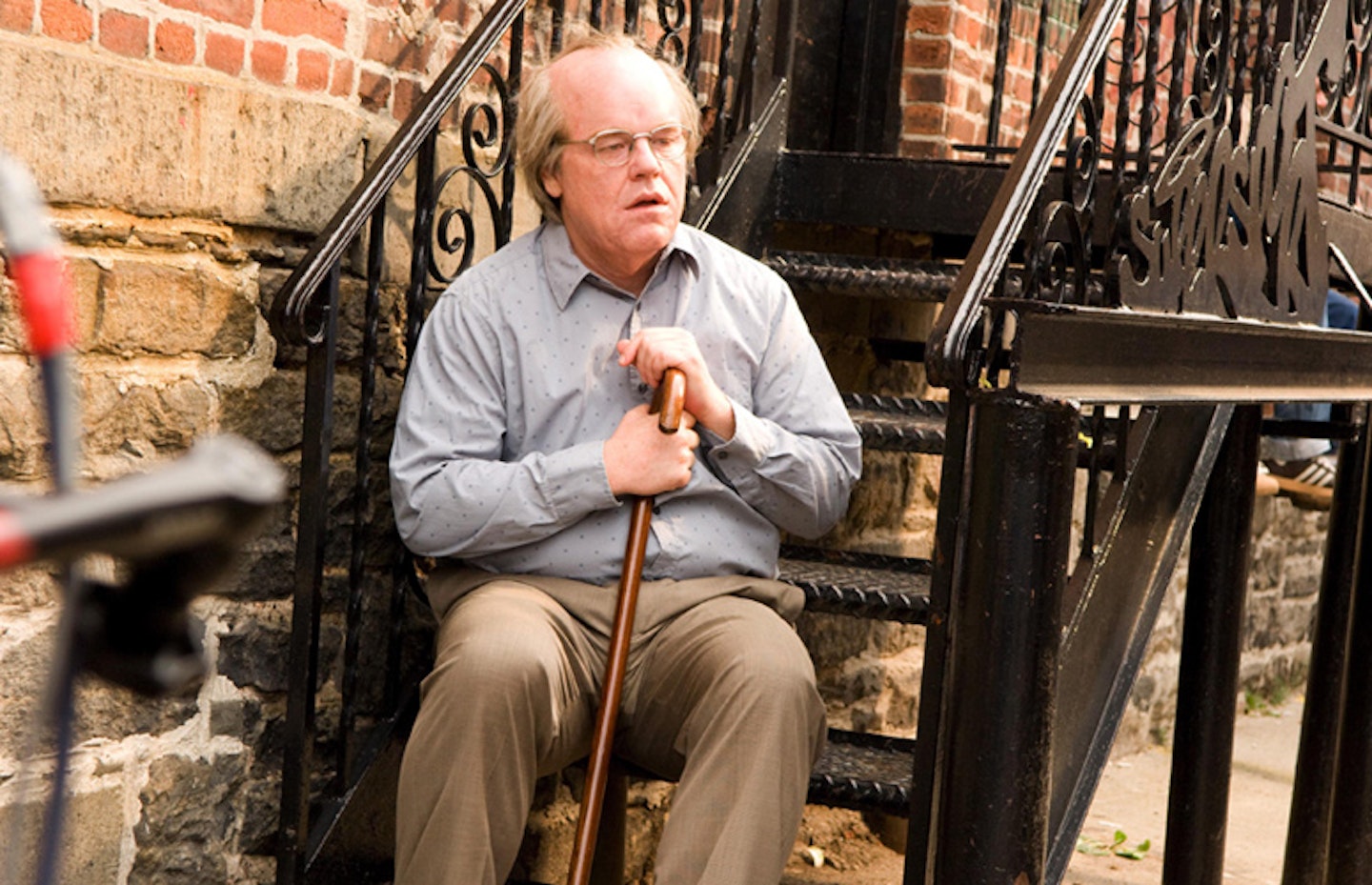
Chosen by:* Ben Kirby, Staff Writer*
Charlie Kaufman’s Synecdoche, New York divided critics and audiences, but what no-one can dispute is that Philip Seymour Hoffman’s performance is magnificent. As Caden Cotard, a theatre director lost in a Borgesian labyrinth of art and performance, Hoffman is pathetic, brilliant and entirely, tragically human. The film focuses unflinchingly on his character – Hoffman is hardly ever offscreen – as Caden experiences ever more intimate and extreme moments of doubt, grief and infirmity.
The role itself is enormously challenging, with Hoffman ending the film hidden beneath prosthetic wrinkles, finally facing death with childlike confusion and desperation. As the film erupts into chaos, Hoffman is our anchor, providing Kaufman’s vision with its vital emotional centre. His is also a thoroughly corporeal role, as Caden’s body gradually ages and falls apart: from a tap exploding and cracking open his forehead to losing the ability to produce saliva (and having to swallow his food like a duck), Hoffman embodies Caden in all his intimate and very human indignities. In this extraordinary film, he somehow captures the sadness and the suffering of life. I can honestly say I’ve never been more moved by a performance.
THE TALENTED MR. RIPLEY (2001)
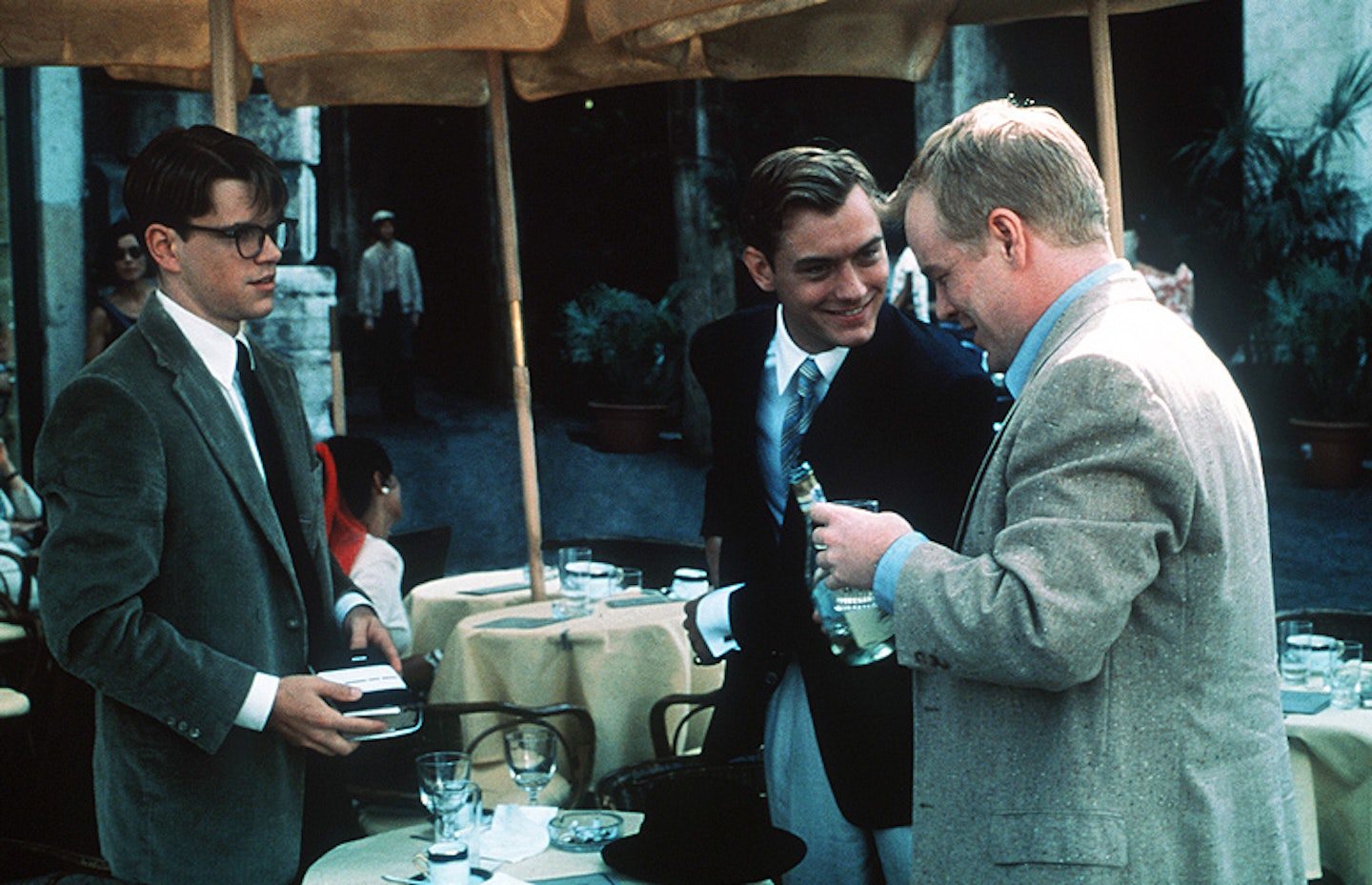
Chosen by:* Chris Lupton, Art Director*
I love his over the top performance in The Talented Mr Ripley. Seymour Hoffman's brief portrayal of the naughty Freddie Miles gave us a fully-rounded figure who was clever enough to see through Tom Ripley's machinations, albeit to his ultimate undoing. His flamboyant performance outshone a powerhouse of a (at the time) very young cast. Perfect for a Highsmith novel.
And I’m not alone on this. No less an authority than his Doubt co-star Meryl Streep also named this as the moment he broke through. “I remember seeing Philip in ‘The Talented Mr. Ripley,’” said Streep. “He played a rich, spoiled snob, and I sat up straight in my seat and said, ‘Who is that?’ I thought to myself: 'My God, this actor is fearless. He’s done what we all strive for — he’s given this awful character the respect he deserves, and he’s made him fascinating'.”
ALONG CAME POLLY (2004)
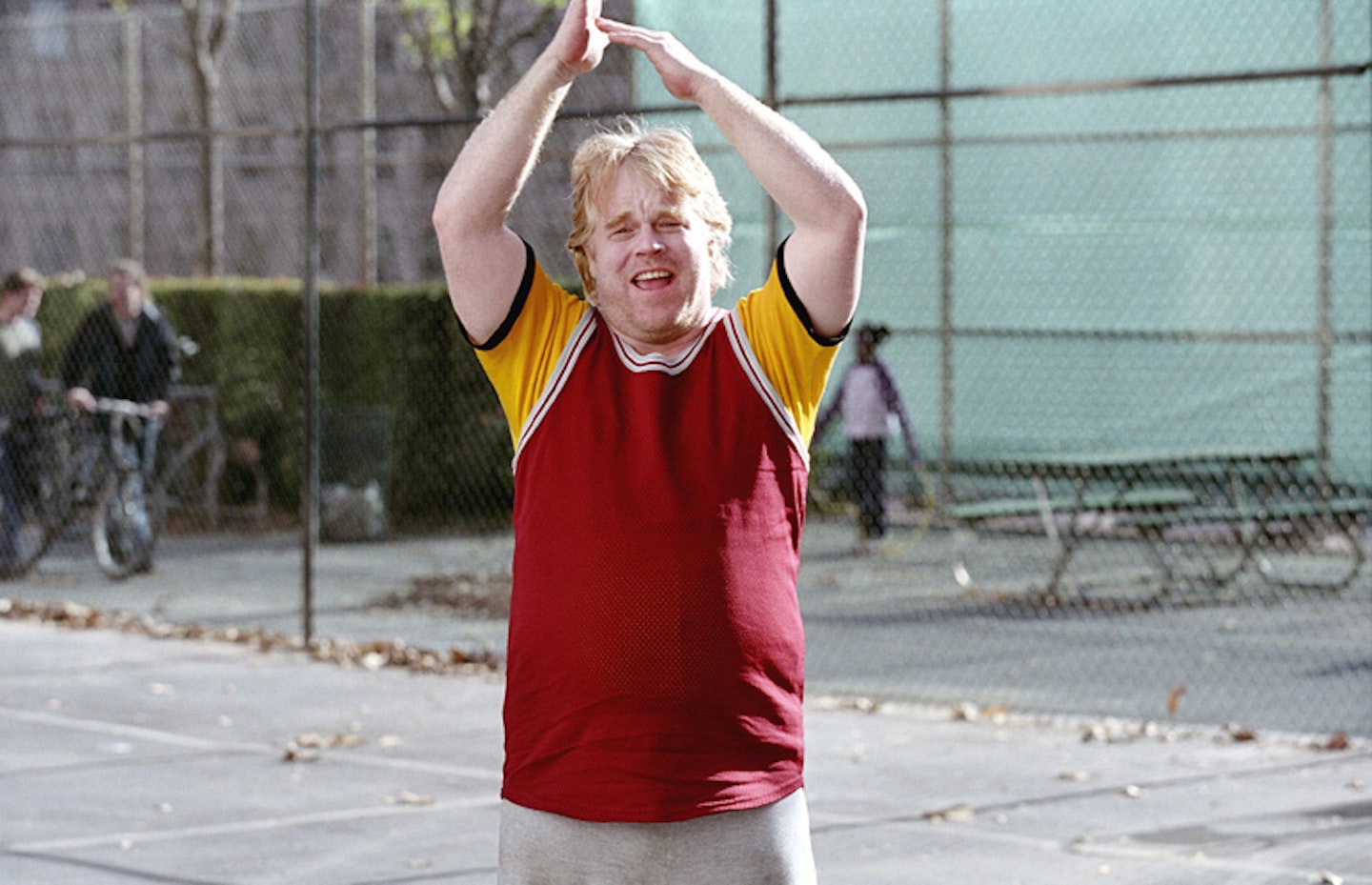
Chosen by:* Jodie McEwan, Picture Desk Assistant*
I wouldn't say Phillip Seymour Hoffman was exactly best-known for his performance in Along Came Polly, but it is definitely one of my favourites. He played his character, former child actor Sandy Lyle who can't get over his past, with ridiculously amazing humour that came hand-in-hand with all the film’s best one liners.
One moment that will forever stay seared into my mind is when Sandy must immediately leave a party after trying to subtly fart, but instead “sharts”. And if you're not sure what 'sharting' means then I suggest you don't look it up if you're about to eat lunch. So a new, er, medical term entered the dictionary and Hoffman proved that he could do bad taste in the service of broad laughs as well as Solondz-style black comedy.
MISSION: IMPOSSIBLE III (2006)
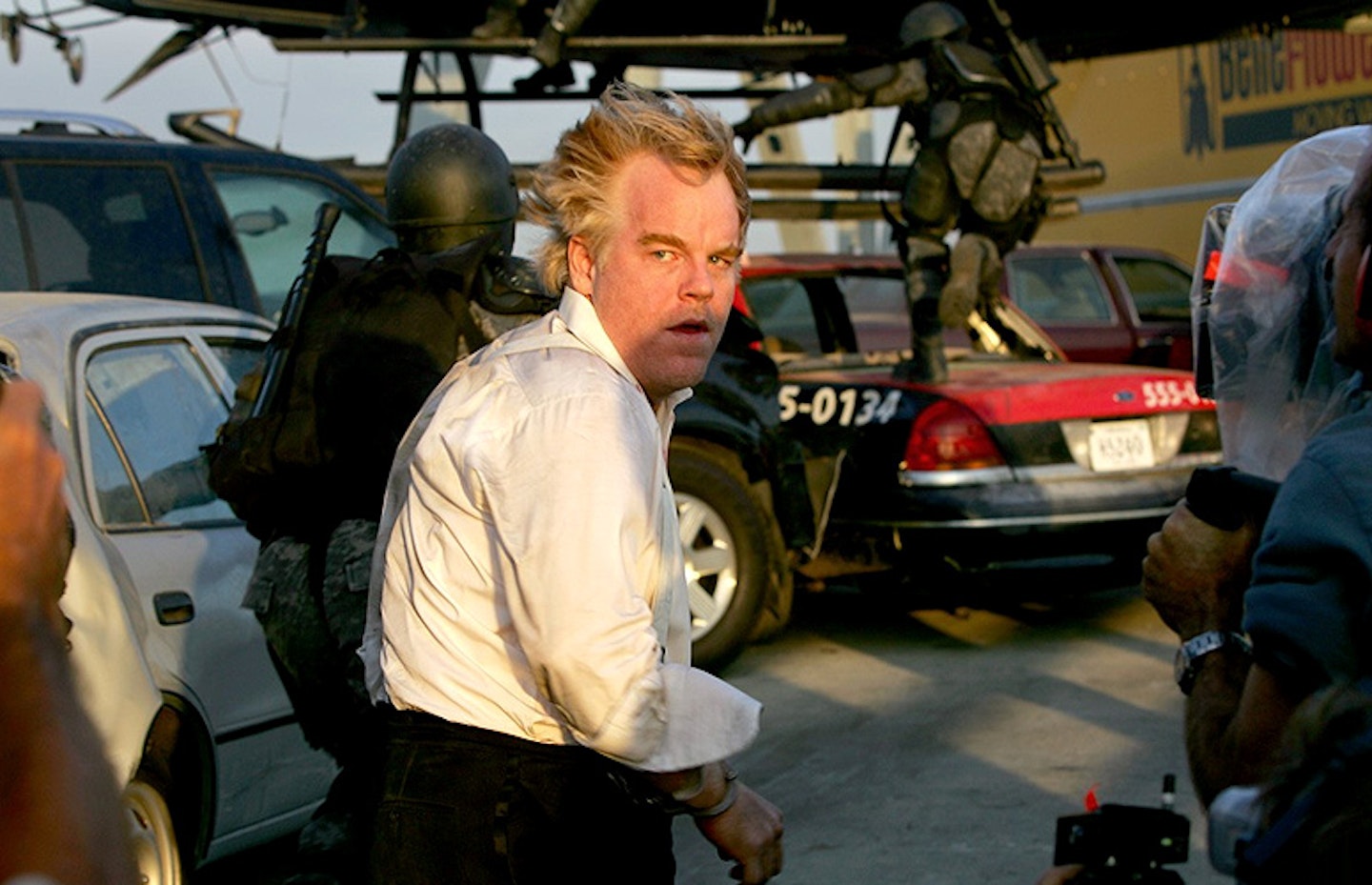
Chosen by:* James Dyer, Editor-in-Chief (Digital)*
“Who are you?” asks Hoffman’s Owen Davian. “What's your name? Do you have a wife? A girlfriend? Because if you do, I'm gonna find her. I'm gonna hurt her. I'm gonna make her bleed and cry and call out your name. And then I'm gonna find you and kill you right in front of her.” And you believe him.
Hoffmans’ schlubby, unlikely-looking arms dealer is so far and away the best thing in J. J. Abrams’ M:I:3 that the wait between his magnificent prologue introduction (shooting a captive Michelle Monaghan in the face) and his second act return is almost unbearable. He’s not big, he’s not tough, but Hoffman injects Davian with so much chilling, sociopathic steel that he rivals any of cinema’s great antagonists for sheer intimidation. It is for this reason (and this alone) that M:I:3 remains my favourite instalment in the series. It has neither the best action nor the most coherent plot (rabbit's foot? Really?) but Hoffman's performance is the high point of the entire franchise. It's a masterclass in villainy, an exemplar of glowering malignancy and the very quintessence of what it means to be a terrifying motherfucker.
THE MASTER (2012)
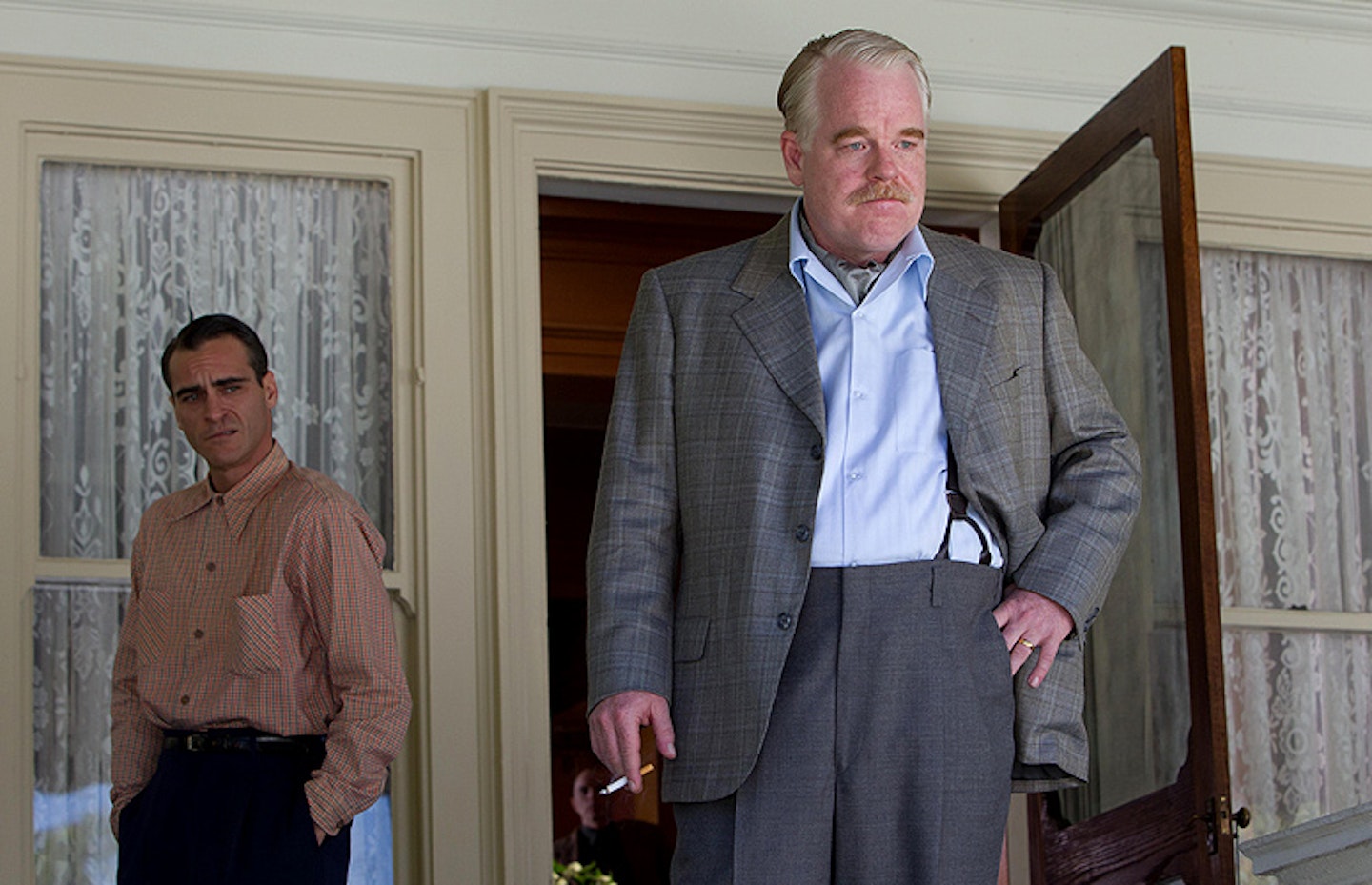
Chosen by:* Dan Jolin, Features Editor*
I still find it odd that the Academy considered this a 'Supporting Role'. The Master is very much a two-hander, and while Joaquin Phoenix dominates the screen time, Philip Seymour Hoffman's presence exerts just as much weight. Writer-director Paul Thomas Anderson (who wisely cast Hoffman in five of his six movies) might not have been making an L. Ron Hubbard biopic, but through showboating charlatan Lancaster Dodd, Hoffman recreated a historical figure just as thoroughly and convincingly as he did Truman Capote in Capote. Well, I describe Dodd as a charlatan, but that's my bias; in Hoffman's hands he rings sonorously true as a man hooked on his own spiritual/self-help hooch, and nailed that eerie charisma which somehow made Dodd/Hubbard's meandering, meaningless monologues strong enough to attract a cult around him. And it's hard to imagine who else could, with such wonderful, composure-exploding, faux-pas-delivering force, have delivered Dodd's screamed obscenity "PIG-FUCK!"
BEFORE THE DEVIL KNOWS YOU'RE DEAD (2007)
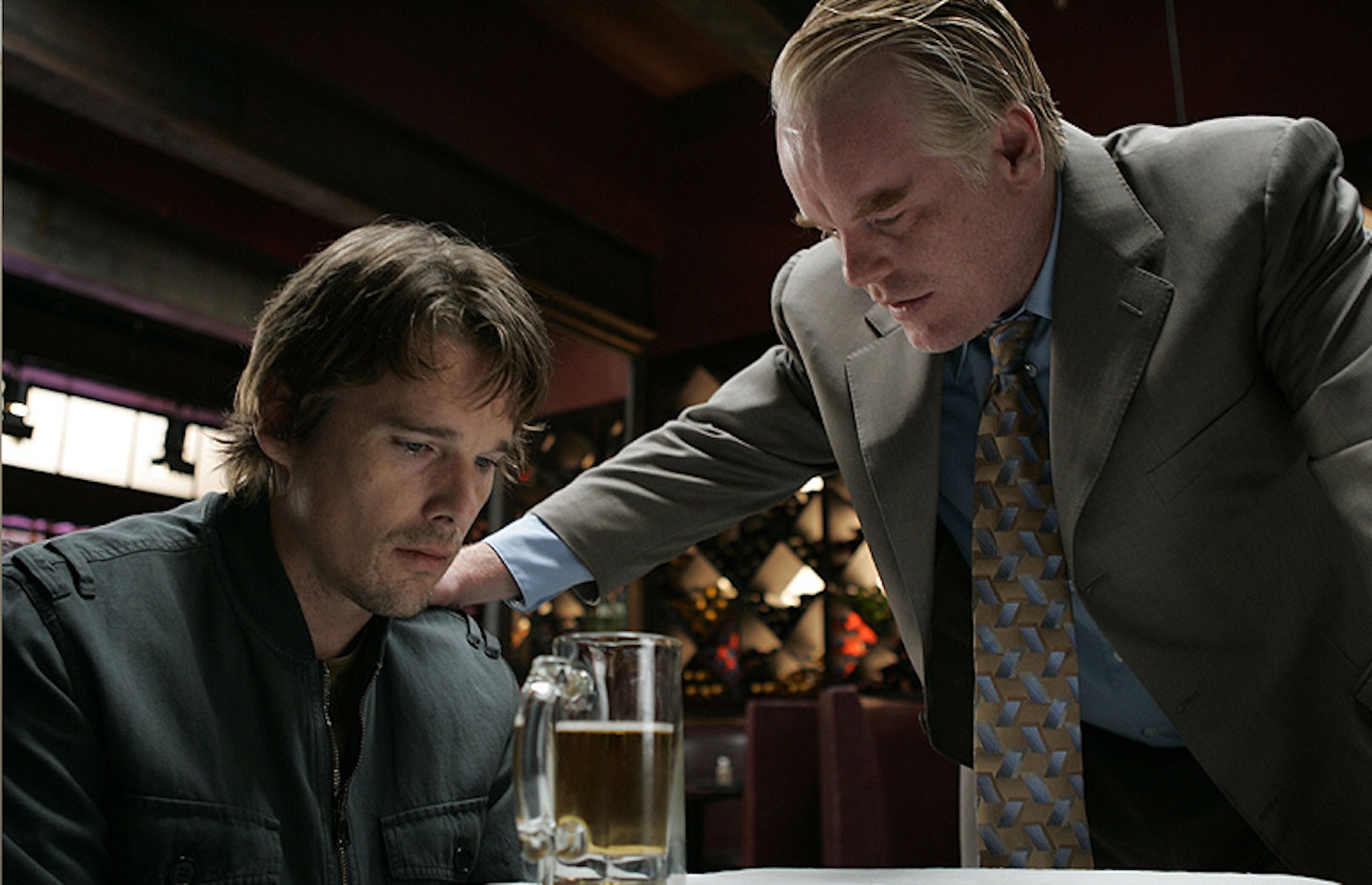
Chosen by:* Liz Beardsworth, Associate Editor (Production)*
Throughout his career Philip Seymour Hoffman found humanity in the most ostensibly horrible of characters, perhaps never more so than as Andy in Sidney Lumet’s underrated and underseen Before The Devil Knows You’re Dead.
His reprehensible older brother (to Ethan Hawke’s moral weakling Hank) sets in motion a quite horrific chain of events, seemingly driven only by a desire for money and power, but within this monstrous man Hoffman hints at a well of sadness and unseen damage that goes some way to explaining, if not excusing, his actions. As ever, Hoffman brought an empathy where few others could. He understood.
MAGNOLIA (1999)
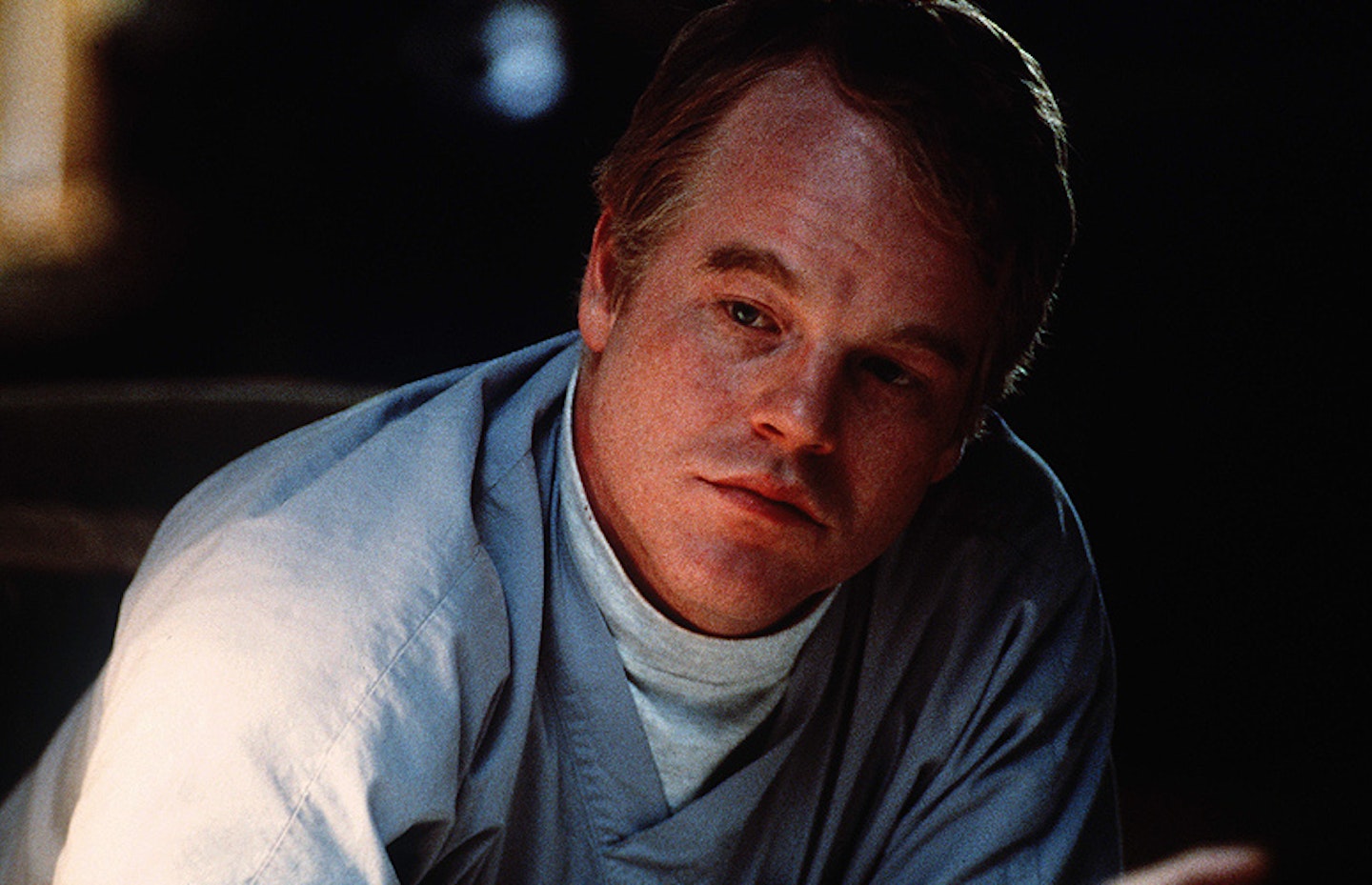
Chosen by:* Debi Berry, Photographic Director*
In a film directed by Paul Thomas Anderson, with an ensemble cast that reads like a who’s who of Hollywood, Philip Seymour Hoffman manages to stand out among bigger names and showier moments. His tender and love-filled portrayal of a nurse and carer to Jason Robards' hardened cancer-stricken TV exec is beautifully played. From his heartfelt phone call in a bid to track down Frank T. J. Mackey (Tom Cruise) to his tears at Robards' bedside as Aimee Mann’s 'Wise Up' plays, it's a scene-stealing performance that offers a compassionate heart to the film and a stark contrast to Mackey’s aggression.